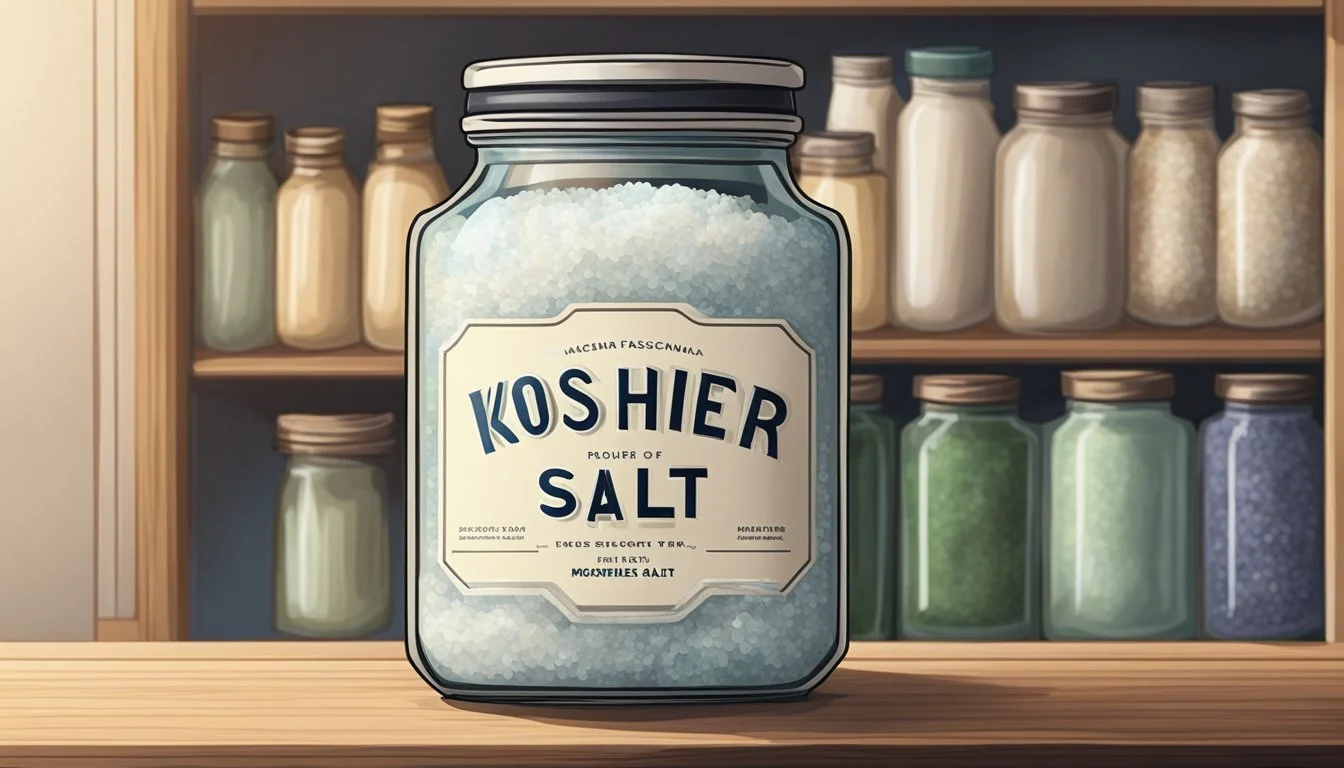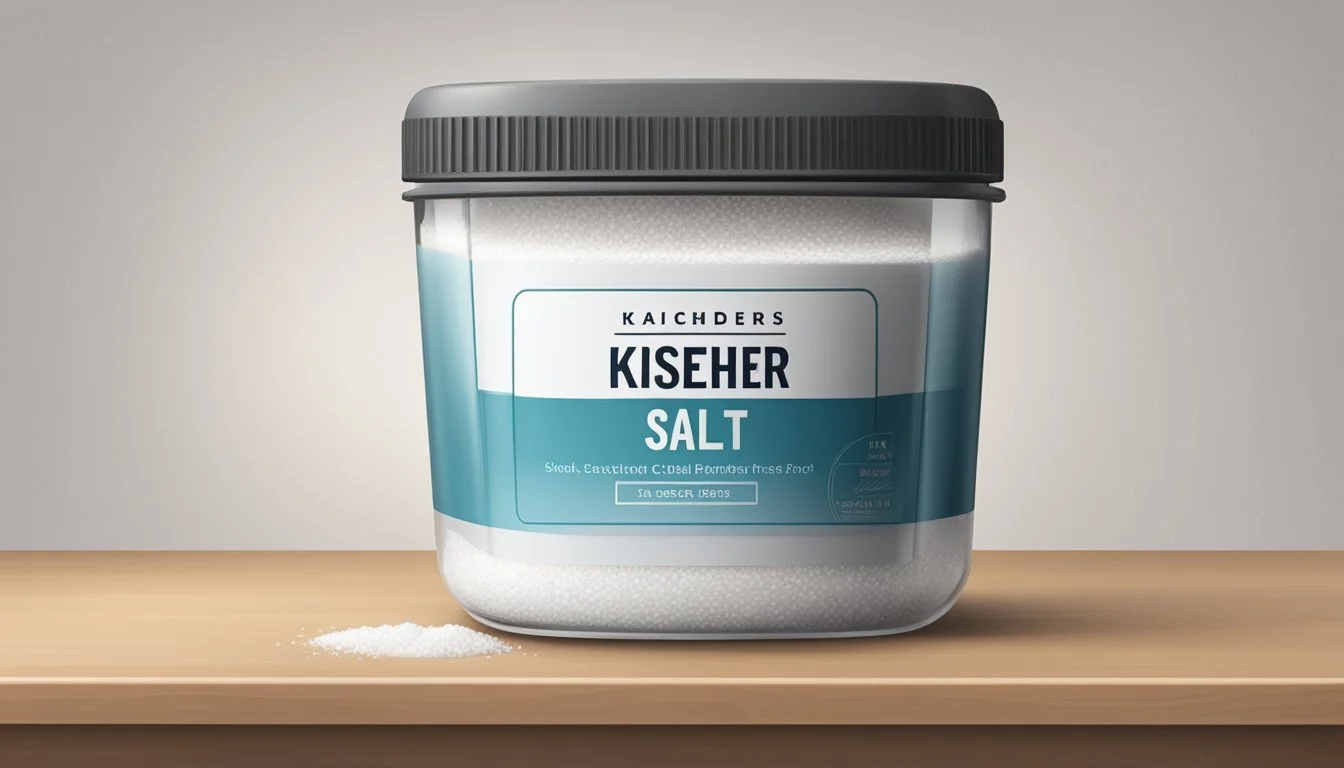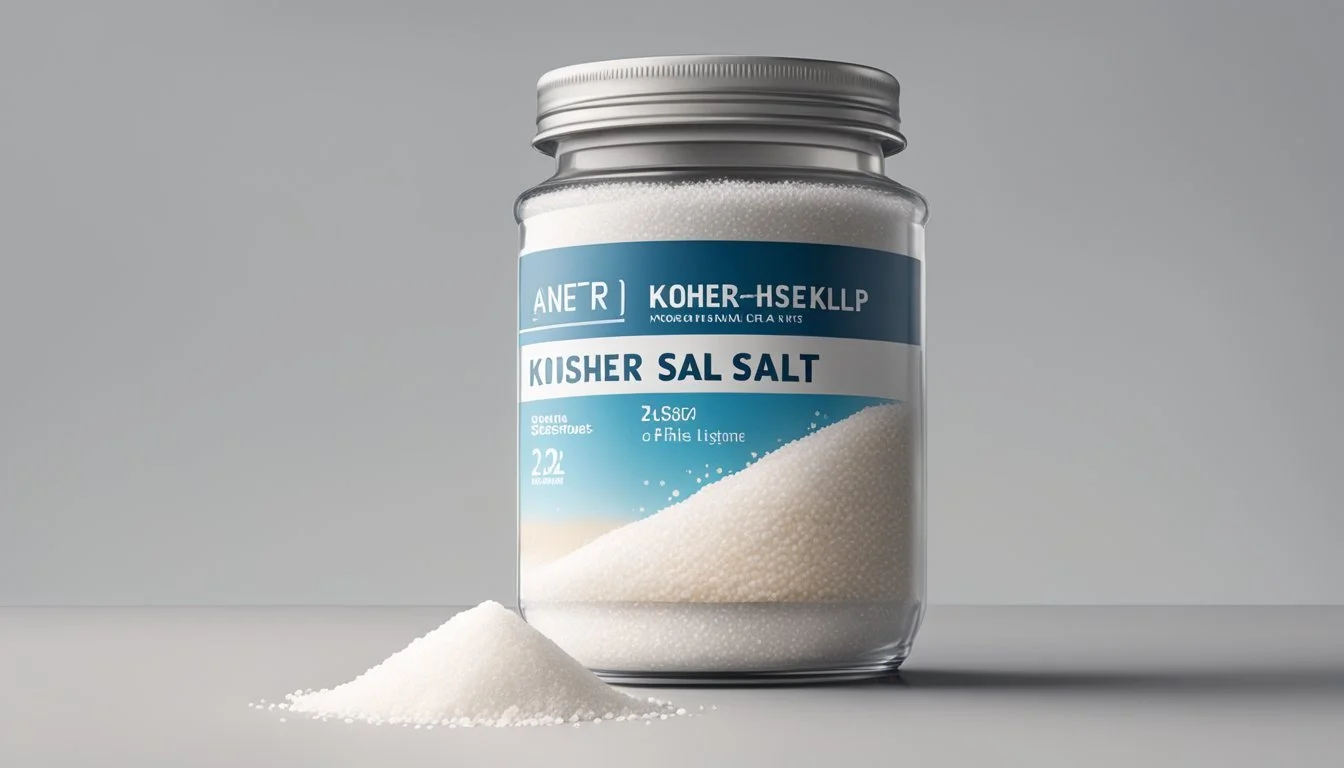How Long Does Kosher Salt Last?
Shelf Life and Storage Tips
Kosher salt, (how long does kosher salt last?) a staple in many kitchens for its pure taste and versatile use in cooking, is known for its exceptional shelf life. It consists of larger, flake-like crystals compared to regular table salt and is preferred by many for its ability to distribute flavor more evenly in dishes. Unlike table salt, kosher salt typically does not contain additives such as iodine, which can contribute to caking and alter the taste over time. This absence of additives allows kosher salt to maintain its quality and flavor for extended periods.
Concerning its shelf life, kosher salt is remarkably resilient. If stored properly in a cool, dry place, it can last indefinitely without losing its effectiveness. Proper storage is key to preventing moisture from causing the salt to clump. Clumping itself does not indicate that the salt has expired, but it can make it more difficult to use effectively in cooking. It is generally accepted that while kosher salt does not technically expire, it can potentially lose its peak quality after about five years. However, this does not pose any safety concerns and the salt can still be consumed without harm.
Understanding Kosher Salt
Kosher salt is distinct from other salts due to its texture and use in the koshering process. It is a key ingredient in many culinary applications.
Characteristics of Kosher Salt
Kosher salt, known for its large, flaky, coarse-grained texture, provides a different touch experience for chefs and home cooks alike. Its crystals are lighter and less dense compared to table salt. The absence of additives, such as iodine, which is commonly found in table salt, helps preserve the pure taste of kosher salt.
Comparison to Table and Sea Salt
When compared to table salt, kosher salt has larger, irregular grains that do not dissolve as quickly. This feature offers more control over seasoning during cooking. Sea salt (how long does sea salt last?) varies in texture and taste based on its source and processing but typically contains minerals absent in kosher salt. Both table and sea salts often include anti-caking agents, which kosher salt generally lacks.
Salt Type Texture Additives Dissolving Speed Kosher Salt Large, flaky, coarse-grained None Slower Table Salt Fine-grained Iodine, anti-caking Quick Sea Salt Varied, can be coarse Minerals (varies) Varies
The Koshering Process
The name "kosher salt" is derived from its use in the koshering process, where it is applied to meat to draw out blood, a requirement in keeping with Jewish dietary laws. While the salt itself is not necessarily certified kosher, its large grains are particularly suited to this practice. The process also showcases the salt's ability to adhere to surfaces, making it a robust tool for crafting seasoned crusts on proteins.
Factors Affecting Kosher Salt's Shelf Life
The shelf life of Kosher salt is generally indefinite, but certain factors can influence its longevity and quality. Proper storage is key to maintaining its condition.
Environmental Impact
Environmental factors play a significant role in the longevity of Kosher salt. Extreme temperatures can affect the salt, though it remains stable under a wide range of conditions. However, consistent temperatures are conducive to its preservation.
Moisture and Clumping
Moisture is the primary adversary of Kosher salt's shelf life. If exposed to moisture, the salt can clump together, which is an indication of compromised quality. To prevent this, storing the salt in an airtight container is essential.
Signs of moisture exposure:
Clumping
Caking
Change in texture
Storage Conditions
For optimal preservation, Kosher salt should be kept at room temperature in a cool, dry place. Humidity can degrade the salt's quality, so areas with low humidity are ideal for storage.
Best practices for storage:
Use an airtight container
Store in a dry place
Maintain a stable temperature
Avoid exposure to humidity
Proper Storage of Kosher Salt
To ensure the longevity and quality of kosher salt, proper storage solutions need to be employed, and signs of improper storage must be recognized.
Ideal Storage Solutions
For the effective storage of kosher salt, it should be kept in a cool, dry place to prevent moisture absorption which could lead to clumping. A pantry or kitchen cabinet that is away from heat sources and moisture is ideal. The use of airtight containers or jars with a secure lid is recommended. This not only prevents moisture from entering but also keeps out bugs and other contaminants.
Recommended Containers:
Airtight glass jar
Sealed plastic container
Original packaging with secure closure
It's important to note that kosher salt does not typically include anti-caking agents, making it more prone to clumping. Therefore, it should not be stored in a shaker unless it is used frequently and can be kept dry.
Signs of Improper Storage
Kosher salt that has been stored improperly may show signs such as:
Clumping: Indicates that moisture has been absorbed.
Discoloration: Suggests possible contamination.
Odor absorption: Kosher salt can pick up strong odors from its environment, which may affect its taste.
These signs can contribute to a decrease in the usability of the salt but generally do not lead to spoilage in the traditional sense since salt is inherently a preservative. If kosher salt is exposed to these conditions, it may still be usable after removing the affected portion, but its optimal quality might be compromised.
Kosher Salt Lifespan and Expiration
Kosher salt is renowned for its long shelf life, and understanding its expiration can aid in maintaining its quality over time.
Can Kosher Salt Expire
Kosher salt itself does not expire in the sense that it remains safe to consume indefinitely when stored correctly. It does not contain any preservatives because it does not need them. However, its peak quality might slightly diminish after around 5 years from being opened. Although there may not be an expiration date or best-by date present on kosher salt packaging, users should note that after a significant duration past its optimal period, salt might clump or lose its ideal texture.
Determining Usability
To determine whether kosher salt is still at its peak quality, consumers should inspect it for any signs of moisture or clumping, which indicate exposure to humidity or other contaminants. While a change in texture is not a health concern, it can affect culinary precision:
Clumping: Signifies moisture exposure but can often be broken apart for normal use.
Discoloration: Rarely occurs, but if present, it suggests contamination, and one should consider discarding the salt.
It's important to remember that while the nutritional value of kosher salt remains consistent, its ability to flow freely is key to culinary use, so storage conditions are critical to maintaining its functional value.
Using Kosher Salt in Cooking
Kosher salt is a versatile ingredient favored by chefs for its ability to enhance the flavor of meals without the additives present in iodized table salt.
Cooking and Seasoning Benefits
Kosher salt's large, flaky grains provide chefs and home cooks with control during the seasoning process. It's excellent for drawing out moisture and improving the taste of foods through the koshering process. The texture allows for easy measurement by pinch and sprinkle, making it a popular choice for seasoning before, during, and after cooking. The absence of iodine and anti-caking agents means it won't impart any off-flavors, ensuring the true flavor of the ingredients shines through.
Flavor Enhancement: Pure and additive-free, kosher salt dissolves easily, evenly distributing the saltiness.
Texture: The coarse texture is ideal for creating crusts on meats or adding a final touch to vegetables and baked goods.
Recipe Considerations
When utilizing kosher salt in recipes, it's crucial to remember that one teaspoon of kosher salt does not equate to the same saltiness as one teaspoon of iodized table salt due to its larger grain size. Home cooks should adjust measurements accordingly, using about 1.5 times more kosher salt if substituting for table salt. Additionally, kosher salt is favored in baking where precise control over grain size can affect the final product, and in pickling, where the absence of iodine ensures a clear brine.
Measurement Adjustments: 1 tsp table salt ≈ 1.5 tsp kosher salt
Baking Considerations: Ideal for controlling fermentation in bread recipes.
Pickling: Ensures clear brine, vital for pickled vegetables. (What wine goes well with pickled vegetables?)
The consistent use of kosher salt can elevate the taste and texture of a wide array of dishes, making it a staple in the culinary world.
Additional Considerations
When discussing the longevity of kosher salt, two pivotal elements need to be considered beyond its indefinite shelf life: health and dietary implications, as well as the economic and quality aspects related to its use and storage.
Health and Dietary Aspects
Kosher salt is often preferred for its purity and the fact that it typically lacks anti-caking agents and additives, which can be found in iodized table salts. While iodized salt (how long does iodized salt last?) contributes to maintaining proper thyroid function, individuals who favor kosher salt should ensure they receive iodine from other dietary sources. Natural salts, such as Himalayan pink salt (how long does himalayan pink salt last?) and unrefined sea salt, often contain trace minerals, but they also lack iodization. Users should consider their dietary needs in accordance with Jewish dietary laws or other health considerations when choosing between iodized and non-iodized salts.
Economic and Quality Factors
When it comes to economic and quality factors, purchasing and storing kosher salt can be more cost-effective due to its long shelf life. Here is a brief comparison of kosher salt with other types of salt:
Type of Salt Quality Factors Economic Considerations Kosher Salt No additives; may clump if exposed to moisture. Cost-effective due to long shelf life. Iodized Table Salt Contains iodine; prevents goiter. May have a shorter shelf life due to additives. Himalayan Pink Salt Contains minerals; lacks iodine. Typically more expensive than kosher salt. Unrefined Sea Salt Natural and unprocessed; mineral content varies. Can be pricier due to minimal processing.
The flavor of kosher salt is often considered cleaner by chefs, which can influence its perceived quality. Products without additives, such as kosher salt, maintain their taste for longer periods compared to salts with anti-caking agents or additional substances that could potentially alter the flavor over time.






